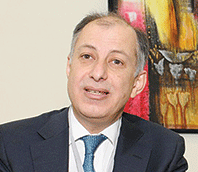 Dr. Naushad Forbes is president of the Confederation of Indian Industry (CII) and co-chairman of Forbes Marshall Pvt. Ltd.
Dr. Naushad Forbes is president of the Confederation of Indian Industry (CII) and co-chairman of Forbes Marshall Pvt. Ltd.
1. Every college and university should be autonomous — it must swim or sink on its own.
2. Higher ed institutions must determine their curriculums, admission, fees and faculty recruitment.
3. Colleges and universities must compete for the best students, faculty and for grants and funding.
4. Government funding must be liberal but should support autonomy and competition.
5. Over the next ten years, the proportion of national R&D conducted in our higher education system must rise from 4 percent (the lowest of any major economy) to the world average of 17 percent.
6. Universities should have equal number of researchers and teachers. They must compete for research grants.
7. Stop over-subsidising higher education. Why should JNU students’ fees cover only 3 percent of the university’s annual budget?
8. Student loans (backed by government guarantee) to all who need them.
9. Central and state governments must stop setting tuition fees. This will end the capitation fees system.
10. The state should encourage learning assessment bodies, public and private, to evaluate and rank colleges and universities.
11. Between government and the private sector, NEP 2016 should ensure the creation of a few world-class universities.
Dr. Parth Shah’s prescription
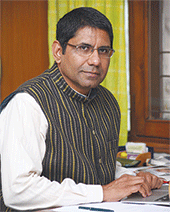 Dr. Parth J. Shah is founder-president of the Centre for Civil Society, Delhi.
Dr. Parth J. Shah is founder-president of the Centre for Civil Society, Delhi.
1. Separate government’s role as regulator, financier and provider of education.
2. Use tools of per-student funding such as vouchers, direct cash transfers, and scholarships to improve efficiency and accountability of public spending and provide more choice to parents.
3. Institute learning outcomes-based school recognition and regulation of government and private schools.
4. Conduct National Achievement Survey (NAS) every year for both government and private schools.
5. Participate in all future rounds of PISA and TIMSS.
6. Make district the basic unit of education governance and revise roles of education officers to reorient school inspection.
7. Create centralised district and state-level MIS (management information systems) for better governance, and place in public domain in formats that parents can understand and use.
8. Establish independent education disputes resolution tribunals with robust online grievance redressal systems.
9. Provide unique ID to all students, teachers and principals and maintain online portfolios of their work, training and performance.
10. Allow innovations in education delivery mechanisms through blended learning, MOOCs and magnet schools for gifted and challenged students. Encourage charter and PPP schools.
11. Amend the Companies Act for registration of schools as companies with for-profit and not-for-profit options.
Nishith Desai wish list
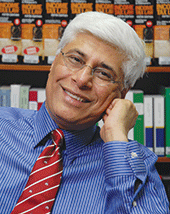 Nishith Desai is founder and managing partner of Nishith Desai Associates, a Mumbai-based transnational legal and tax counseling firm.
Nishith Desai is founder and managing partner of Nishith Desai Associates, a Mumbai-based transnational legal and tax counseling firm.
1. NEP 2016 should be results oriented. Clear action plan and timelines should be set out to achieve the objectives of NEP 2016.
2. Little importance is being given to quality of education delivered. NEP 2016 should also focus on attracting talented teachers who are given constant training.
3. Uniformity in the regulatory framework countrywide will address issues of overlap in regulations, and encourage greater private sector participation.
4. Supply side focus to increase private investment in education. This will result in improved access and automatically lower tuition fees.
5. Syllabuses need to be revamped to provide for skills-based learning and vocational training, to make students employable.
6. Education policy should focus on making learning a fun-filled activity.
7. Pre-primary and primary syllabuses/curriculums should include soft skills and focus on virtues and habits such as tolerance, integrity, integration, hygiene, cleanliness etc.
8. NEP 2016 should allow for-profit enterprises in higher education. Haryana already allows schools to be promoted by for-profit companies.
9. Private unaided education institutions should be allowed full liberty in their operations.
10. NEP 2016 should reduce the number of regulators, and make the process of granting approvals transparent and faster.
11. NEP 2016 should enable easy entry of foreign education institutions.
NEP 2016: FICCI perspective
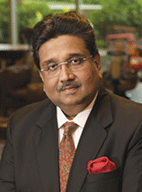 Harsh Neotia is president of FICCI (Federation of Indian Chambers of Commerce and Industry). In our view, the National Education Policy 2016 should enable the following:
Harsh Neotia is president of FICCI (Federation of Indian Chambers of Commerce and Industry). In our view, the National Education Policy 2016 should enable the following:
1. A high-quality, equitable and affordable education system which promotes human values, scientific temper, professional integrity, critical thinking, logical reasoning and innovation, and motivates students and teachers to raise the bar.
2. Special provision for gifted children exhibiting extraordinary skills at young age in academics, sports, art and culture.
3. Special provision for special needs children to make inclusion a reality.
4. Effective coordination between various ministries (sports, skill development and entrepreneurship, culture, etc) and the Union ministry of human resource development.
5. Streamlined, overarching, enabling, outcomes-based regulatory framework that allows co-existence and growth of all types of education institutions.
6. Governance model that promotes quality, transparency, autonomy and accountability in school and higher education.
7. The RTE Act, 2009 needs review. It should be amended to make education provision financially viable for private schools. Compensation under s.12 (1) (c) of the RTE Act should be commensurate with every school’s infrastructure and delivery model.
8. An accreditation system that drives India’s higher education system towards ever rising quality benchmarks. The focus of the rating system should be on helping institutions in self-assessment and improvement based on global standards.
9. A higher education system that promotes collaboration and alliances and enables foreign students, PIO and NRI children to study in India, enroll in twinning programmes, and facilitate college/university engagement with industry.
10. NEP 2016 should accelerate and enable ICT (information and communications technology) in education at all levels and in institutional administration.
11. The new policy should facilitate selection of top talent for leadership roles and ensure continuous professional development of faculty.
NEP 2016: Shantanu Prakash wish list
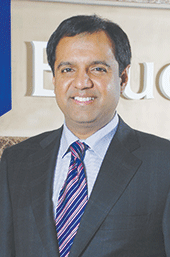 Shantanu Prakash is founder-chairman of Educomp Solutions Ltd.
Shantanu Prakash is founder-chairman of Educomp Solutions Ltd.
1. Introduce a reformist higher education regulator. India needs a regulator to drive investments, quality of education, results, accreditation, industry-academia relationships, continuing education for teachers, curriculum, innovation and research.
2. Framework for FDI and bringing foreign institutions to India. Opening up the education sector for FDI (foreign direct investment) and foreign participation will radically improve quality of education.
3. Teacher development and management. A robust framework to engage, promote, encourage and develop good teachers for our school system is urgently required.
4. Public-private partnerships. NEP 2016 should encourage PPPs to build school infrastructure through the BOOT (build, own, operate and transfer) model.
5. Clear policy on government schools. The government school system has governance challenges and needs to be overhauled.
6. Modernisation of classrooms. NEP 2016 should provide a roadmap to accelerate ICT and e-learning adoption in all schools.
7. Modernisation of curriculums. Developing syllabuses that focus on STEM and skills such as critical thinking, creativity, collaboration, and communication will prepare school students for the 21st century.
8. Modernisation of pedagogy. We need to transform the ubiquitous rote learning pedagogy by introducing activity-based and adaptive learning.
9. Focus on skills, employability and entrepreneurship. NEP 2016 should encourage skilling, employability and entrepreneurship in formal education.
10. Equity in education & MOOCs. India is miles behind in providing education for girls, marginalised groups and students in rural India. NEP should address this challenge by harnessing new technologies and MOOCs (massive open online courses).
IPSC wish list
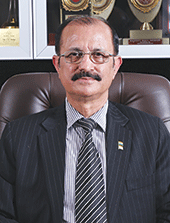 Commander V.K. Banga is chairman of the Indian Public Schools Conference (IPSC), an association of the country’s top-ranked boarding schools.
Commander V.K. Banga is chairman of the Indian Public Schools Conference (IPSC), an association of the country’s top-ranked boarding schools.
1. Universal primary-secondary education. Every child should have the right to be educated in a school — private, government or aided. The choice rests with the parents depending on affordability. Preferably, it can be on economic conditions rather than caste/religion.
2. Complete independence for private schools. Private schools should be given full freedom, subject to academic accountability.
3. Mandatory values-based education. NCERT should frame suitable policies for values–based education which should be made mandatory.
4. Examination reforms. Rote learning should not be rewarded. New pedagogies, helped by technology, can develop the analytical, critical thinking and problem-solving skills of children.
5. Mandatory skills education. There should be compulsory skills education in all schools. Students should be administered scientifically-based psychological tests to determine their aptitudes, talent and capabilities to select suitable academic or skill streams of studies after class X.
6. Syllabus review. All exam boards should revise and recast their syllabuses every five years. To keep pace with it, school curriculums should be reviewed frequently, preferably once in five years.
7. Teacher training. India’s teacher training colleges need to be revamped to impart world-class professional training.